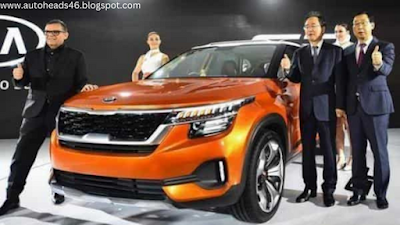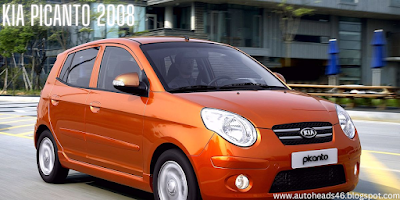History of KIA Motors and Its Rising
Background
How KIA Went From an Undisputed
underdog to a Major Automotive Player
The history of Kia Motors is quite interesting. The South Korean car manufacturer was founded in 1944 as Kyungsung Precision Industry, a steel tubing and bicycle parts producer, and later became Korea's first automobile company in 1967 with the introduction of the Brisa, an inexpensive six-seater mini-van (like a people-mover). It wasn't until 1992 that Kia would move beyond cheap knockoff cars to produce the Sephia, their first attempt at the compact car segment in the United States.
The Birth of the Modern Korean Car
Industry
In 1904, the first car was manufactured in Korea. It was a three-wheeled steam car made by Japan's DAT Motor Company for the Korean Engineering Company. The car ran on coal and carried four passengers.
Ten years later, the first Korean-made gasoline-powered car was built by Yulgok Technical College in Seoul. However, this proved too expensive for most Koreans to afford, and production ceased after only one year. After that, it would be another 22 years before the next Korean-made automobile hit the streets. In 1927, the Donga Motors Manufacturing Company produced its first truck. Within five years of its founding, Donga had been awarded contracts with South Korean government agencies to make buses and trucks. By 1945, more than 30 companies were manufacturing automobiles in Korea, but following WWII, they disappeared as rapidly as they had come. This may have been partly because during the Japanese occupation from 1910-1945, and all automotive companies were owned by Japan or its collaborators.
The Rise of Korean Cars – The 1990s
The Arrival and Early Successes –
2000-2002
Kia's first success came in 2000 when it became the first Korean automotive company to produce automobiles outside Korea. The Sephia sedan resulted from this production and is still being sold today. In 2002, Kia entered the U.S. market for the first time with its Optima sedan, which was still
being produced as of 2016. Kia has also released some popular models since its inception, including the Sorento (2000), the Rondo (2003), and the Soul (2009). These releases made Kia one of North America's fastest-growing car companies. Sales between 2010 and 2013 increased by more than 600%. On top of that, in 2012, Kia Motors ranked seventh among global automakers in unit sales. With over 3 million vehicles sold worldwide last year alone, it is clear that Kia has had a significant impact on the automobile industry both domestically and internationally.
Continuing Growth, Expansion, and
Innovation - 2002-2008
Kia's expansion continued in 2002 with the introduction of Sportage and Sorento. In 2003, Optima, Magentis, and Sephia were introduced. The Spectra was introduced as part of the company's first hybrid vehicle in 2004. In 2005, the G2X was introduced as a subcompact crossover SUV. A year later, the Venga replaced the Rio as the minor car produced by Kia. By 2007, sales had reached 1 million vehicles sold in five years. That same year, Kia entered Formula One racing with its acquisition of a 50% stake in McLaren Electronic Systems' engineering division (50% owned by TAG Technology). McLaren subsequently transferred all its electronic systems operations to Kia Motors. On May 15, 2008, they debuted their F1 Grand Prix racer dubbed the fastest factory-built racecar ever. They finished 4th at the season-opening Australian Grand Prix. They also entered into a technical partnership with Chevron Corporation to develop and produce lithium-ion battery cells for electric cars beginning in 2011.
Striking Out on Their Own – 2008-2013
After years of success with Chrysler, things were looking bleak for the Korean automaker. The partnership ended in 2009, and the company was struggling financially. They couldn't afford to stay afloat by relying on their products, so they turned to build cars for other companies. The turning point came in 2013 when they released the all-new Soul model, which became an overnight success. In 2016, Kia became one of the fastest-growing car companies in America. With over 1.5 million vehicles sold last year, they are now ranked as the 6th best-selling automotive brand in America. With new models like the Niro coming out this year and many more being released in 2018, Kia is setting itself up for even more success. They're doing something few thought possible - going from underdog to major player in the automotive world.
In 2008, Kia Motors faced uncertainty about its future after ending its relationship with Daimler AG (parent company of Mercedes Benz). Kia needed another way to finance itself because it could not rely on sales from its previous line of sedans and SUVs alone. It needed a competitive edge, or it would face bankruptcy; finding such an edge would prove difficult for this once proud firm.
Going
Global – 2013–Present
In 2013, the company introduced the Kia Sorento at the New York Auto Show. The Sorento is one of their most innovative models yet. It features a sportier design than any previous model and is available in front or all-wheel drive. The car has a 3.3-liter six-cylinder engine for more power and efficiency. And it also has such great safety features as Blind Spot Detection System, Lane Departure Warning System, and Rear Cross Traffic Alert. The New Yorker hailed the new Kia Sorento: It was never going to be easy for Korean automakers Hyundai and Kia to break into the U.S. market back in 1986. But three decades later, these companies have emerged as significant players in the American automotive industry—thanks mainly to their dependable compact cars, which include the popular Elantra and Sonata sedans and Rio subcompact hatchback. For example, according to J.D. Power's 2017 Customer Service Index Study, both brands rank among the top five performers in customer satisfaction regarding dealer service departments.
Conclusion
Thanks for reading this article; feel free to contact us if you have any questions or concerns. If you're looking for a new car, consider checking out our website, where we'll help you find the perfect fit.
Also Read About This
https://autoheads46.blogspot.com/2022/09/kia-stonic-price-features-and.html




.png)
.png)
.png)

.png)

0 Comments